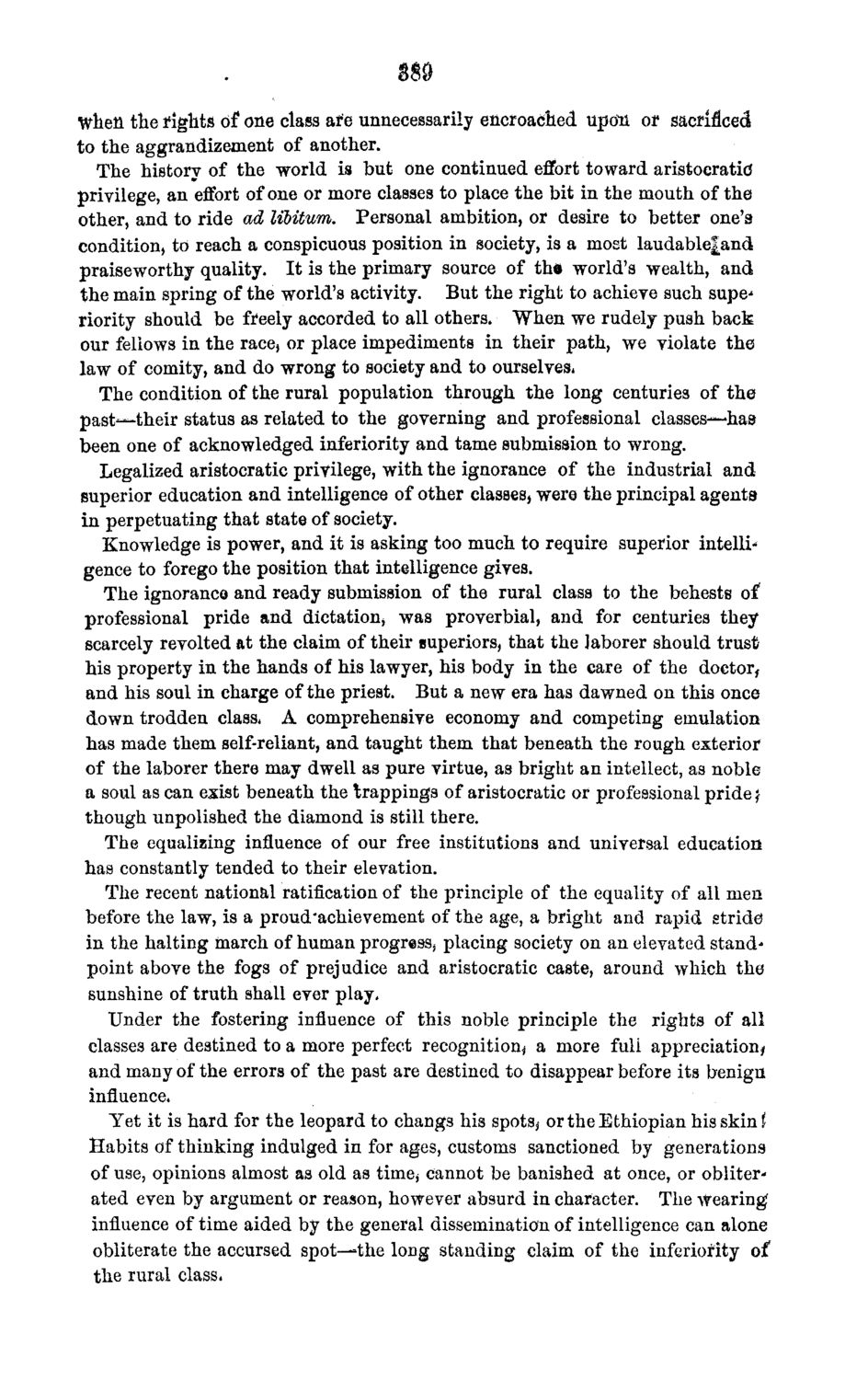| |
| |
Caption: Board of Trustees Minutes - 1870
This is a reduced-resolution page image for fast online browsing.

EXTRACTED TEXT FROM PAGE:
SS9 When the rights of one class are unnecessarily encroached upon or sacrificed to the aggrandizement of another. The history of the world is but one continued effort toward aristocratic? privilege, an effort of one or more classes to place the bit in the mouth of the other, and to ride ad libitum. Personal ambition, or desire to better one's condition, to reach a conspicuous position in society, is a most laudablef and praiseworthy quality. It is the primary source of th« world's wealth, and the main spring of the world's activity. But the right to achieve such supc riority should be freely accorded to all others. When we rudely push back our fellows in the race, or place impediments in their path, we violate the law of comity, and do wrong to society and to ourselves* The condition of the rural population through the long centuries of the past—their status as related to the governing and professional classes—has been one of acknowledged inferiority and tame submission to wrong. Legalized aristocratic privilege, with the ignorance of the industrial and superior education and intelligence of other classes, were the principal agents in perpetuating that state of society. Knowledge is power, and it is asking too much to require superior intelligence to forego the position that intelligence gives. The ignorance and ready submission of the rural class to the behests of professional pride and dictation, was proverbial, and for centuries they scarcely revolted at the claim of their superiors, that the laborer should trust his property in the hands of his lawyer, his body in the care of the doctor, and his soul in charge of the priest. But a new era has dawned on this once down trodden class. A comprehensive economy and competing emulation has made them self-reliant, and taught them that beneath the rough exterior* of the laborer there may dwell as pure virtue, as bright an intellect, as noble a soul as can exist beneath the trappings of aristocratic or professional pride j though unpolished the diamond is still there. The equalizing influence of our free institutions and universal education has constantly tended to their elevation. The recent national ratification of the principle of the equality of all men before the law, is a proud'achievement of the age, a bright and rapid stride in the halting march of human progress, placing society on an elevated standpoint above the fogs of prejudice and aristocratic caste, around which the sunshine of truth shall ever play. Under the fostering influence of this noble principle the rights of all classes are destined to a more perfect recognition^ a more full appreciation* and many of the errors of the past are destined to disappear before its benign influence. Yet it is hard for the leopard to changs his spots, or the Ethiopian his skin I Habits of thinking indulged in for ages, customs sanctioned by generations of use, opinions almost as old as time, cannot be banished at once, or obliterated even by argument or reason, however absurd in character. The Wearing influence of time aided by the general dissemination of intelligence can alone obliterate the accursed spot—the long standing claim of the inferiority of the rural class.
| |